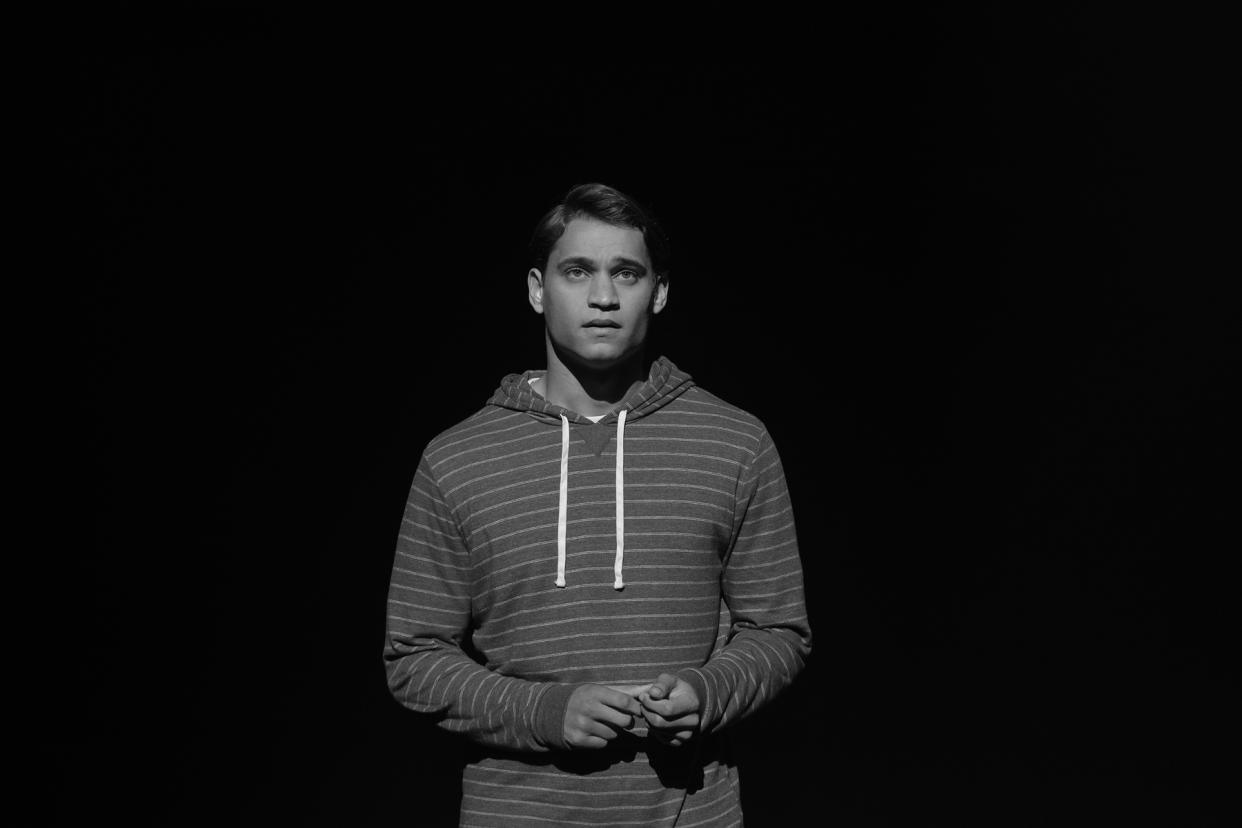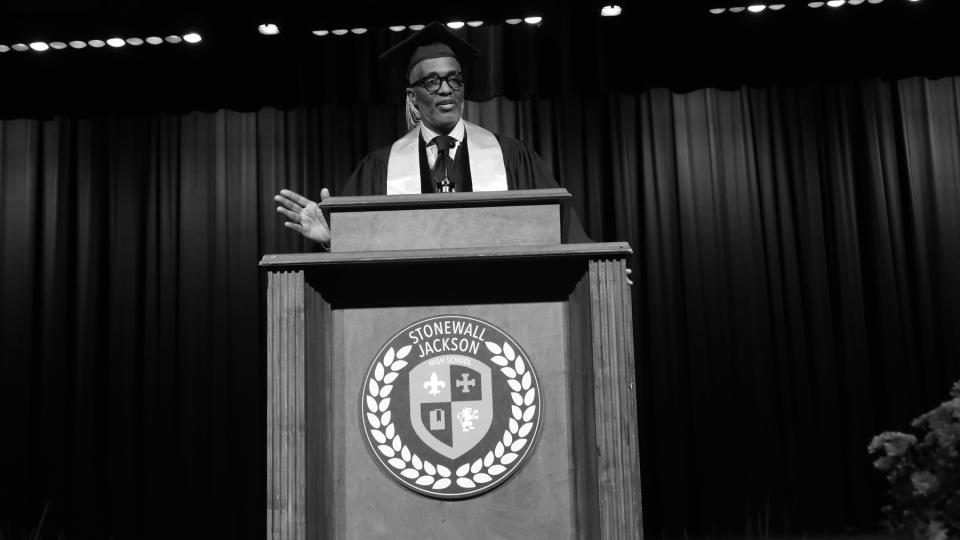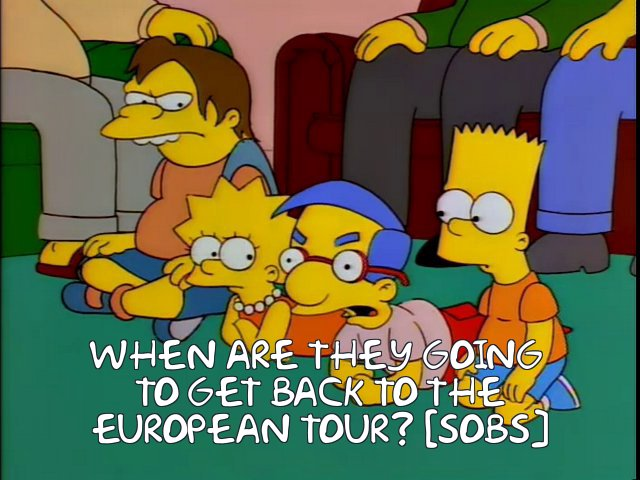‘Atlanta’ Recap: Is Donald Glover Taking This Anthology Business Too Far?

- Oops!Something went wrong.Please try again later.
A review of this week’s “Rich Wigga, Poor Wigga” coming up just as soon as I tell you why the Five Heartbeats broke up…
In the final seasons of Mad Men, the weekly episode descriptions that appeared in TV listings and DVR program guides became hilarious in their spoiler-phobic vagueness: The logline for the Season Six finale read, simply, “Don has difficulties.”
More from Rolling Stone
Yes, That Celebrity Cameo on 'Atlanta' Is Exactly Who You Think It Is
'Atlanta' Asks the Question: Who, Exactly, Is Raising Your Children?
Atlanta has been taking a different, but equally amusing, approach to its Season Three loglines. Each has been written from the perspective of a fan of the show who is, for the most part, not happy with these episodes. The season-opening “Three Slaps,” for instance, carried the logline, “Wow it’s been a minute. I mean, I like this episode about the troubled kid but we waited 50 years for this?” And Al’s quest for his missing phone in “Cancer Attack” was described as, “Sometimes shows just be over my head acting fake deep. Where’s the poop jokes?” “Rich Wigga, Poor Wigga,” meanwhile, is introduced as, “Black and White episode? Yawn. Emmy Bait. Why do they hate black women so much?”
Between the four-year absence, the European setting for the Paper Boi stories, and the periodic anthology stories — “Rich Wigga, Poor Wigga” is the fourth episode out of nine so far to focus on brand-new characters who do not know Al, Earn, Darius, or Van — it is not hard to imagine Donald Glover and company suspecting that this season would not be as well-received as the show was in its earlier days. These loglines are a way of getting out in front of the criticism and acknowledging that viewers might find this new material self-indulgent rather than ambitious.
And people have been complaining, though primarily about the anthology episodes rather than the ones following the main characters. So Glover — who wrote and directed this episode, the first time he’s done both jobs since the first season’s “B.A.N.”(*) — was definitely prescient about at least some of what was coming.
(*) Coincidentally or not, “B.A.N.” was the series’ first episode to barely feature the main cast, as the bulk of it is a collection of TV and commercial parodies interrupted by occasional glimpses of Paper Boi on a panel discussion show. “Rich Wigga” also calls back to the fake Arizona iced tea ad from “B.A.N.,” with its tagline, “The price is on the can, though.”
But have the complaints been fair? To answer that, we have to consider two very subjective questions: First, have these anthology episodes been good? Second, is it reasonable for an ongoing series to make this many deviations from its core ensemble in a single season?
From this vantage point, the answer to the first question is largely yes. I didn’t love “The Big Payback,” which had interesting things to say about reparations and the historical aftershocks of slavery, but didn’t necessarily find interesting ways to say them. But “Three Slaps” was both chilling and darkly funny. “Trini 2 De Bone” was a sad but amusing fable. And “Rich Wigga, Poor Wigga” is a smartly satirical revisitation of one of this season’s ongoing themes — particularly in the anthology episodes — about whether whiteness in America is something that can be acquired, or simply something you are born with.
Our central character here is Aaron (Tyriq Withers), a biracial high school senior in Atlanta. Even with a nose that his father Greg jokes should be a giveaway to his ancestry, Aaron is light-complected enough to read as white in most settings. He has a white girlfriend, Kate (Rachel Resheff), has an all-white circle of friends, and when he gets frustrated with the trash talk of two rivals in an online video game, he calls them the N-word (ending in -er, not -a) and taunts them with monkey sounds when they object. When talking with Greg about a recent police shooting of an unarmed Black teen, Aaron suggests the kid must have done something to warrant it, inspiring his father’s derisive laughter. Aaron is all in on whiteness…
… at least, until a Black entrepreneur named Robert “Shea” Lee(*) arrives at Aaron’s school (Lee’s alma mater) with a too good to be true offer: He will pay the graduating seniors’ full college tuition, but only the Black ones.
(*) Lee is played by controversial YouTuber Kevin Samuels, who died last week. Between Chet Hanks’ appearance in “Trini 2 De Bone,” Liam Neeson’s self-mocking cameo in “New Jazz,” and now this, plus the fact that Neeson met Al in a place called Cancel Club, this season very much has the notion of cancellation — and whether it is in any way real — on its mind.
As in “The Big Payback,” it’s an inversion of the way the economics of America tend to work regarding Black and white people. For Aaron, who doesn’t have enough money to join Kate and their white friends at a college in Arizona, it is a desperately needed lifeline. But he has also spent so much of his young life embracing the white half of his heritage that he is in no way prepared to perform Blackness in order to get his tuition money — especially once it becomes clear that Lee and his two sidekicks are using their own judgment to determine whom they consider to be Black. (In one of the episode’s funnier bits, we see a group of non-Black minority students preparing for their own auditions, rather than being left as bystanders to this country’s traditional racial binary.) He amuses the three-man tribunal with his attempts to answer their questions — the episode cleverly presents both sides of the verbal volley out of context, so we have no idea what Aaron is responding to each time — but so badly tanks the interview that Lee winds up comparing him to Clarence Thomas, which even one of his hype men feels is too brutal an insult.
Things spiral from there: inspired by his favorite video game, Aaron builds a flamethrower and attempts to burn the school down, only to discover a Black student named Felix is trying to do the same thing, having been rejected by Lee for being born in Nigeria (like Darius). Aaron attempts to claim the Black American high ground in this debate, triggering a real-life version of the game where he is being stalked and burned by Felix, before the cops shoot the darker Felix in the shoulder. But where Lee rewards Felix’s initiative with a belated tuition check and an offer to pay for his hospital bills, Aaron simply gets arrested. The story leaps forward a year to show that the experience has forced Aaron to completely embrace the Black side of his heritage in his appearance, speech, and mannerisms, as he now sells electronics at a big box store since he missed out on college. Rachel comes to see him and is put off by what seems to her less code-switching than racial cosplay. But when Aaron says he’s never been more attracted to her in his life, she smiles nervously at the compliment, and the episode ends on Aaron smugly breaking the fourth wall in an ironic freeze frame as the synth line of Loose End’s mid-Eighties hit “Hangin’ On a String” plays.
It’s a fun episode, and another way into the themes touched on in the other anthology stories. But this brings us back to the second question, of whether it’s fair for Glover as a creator to do this many off-format episodes in a single season. On one level, the answer to that of course it is — that Glover has earned the right, not only from the previous two seasons, but from all the other work he’s done post-Community, to do whatever he wants creatively. Especially when most of these diversions have been very good. (And I know of many people who really enjoyed “The Big Payback.”)

Guy D'Alema/FX
But on another, there is the unspoken covenant that exists between TV shows with ongoing characters and the people who watch them, which suggests that at least part of the reason — if not the main reason — we come back episode after episode is because we are interested in these specific people, or some subset of them. Maybe doing a single episode in a season focusing on new people — say, the “New York, I Love You” episode of Master of None, about doormen, immigrant cabbies, and other less-celebrated Big Apple denizens — is an acceptable bending of that agreement. Devoting nearly half your season to it, though, feels like too much, especially when the episodes with Al and friends have been so strong. We praise Atlanta a lot for its chameleon-like tendencies, but in seasons past, the show managed to morph while still remaining tethered in some way to the central characters and the narrative spine. Al is still on camera periodically in “B.A.N.,” and that episode fits into the larger arc of the season about Paper Boi’s rise to the fringes of celebrity. Darius is not a bystander in “Teddy Perkins,” but someone emotionally, physically, and thematically present for the showdown between Teddy and his brother. When Van goes off for standalone adventures, we are still with Van, who is slightly less central to the narrative than the three guys but is nonetheless a core part of the show.
Season Three and Season Four were filmed back to back, in complicated pandemic conditions. It may be that when the production resumed, it became logistically more difficult than expected to film a full season in Europe, and the anthology episodes were a way to fill out the 10-episode order even as the tour was used as the narrative spine for the whole thing. Or it may be that Glover simply wants to use the Atlanta production apparatus — and the Atlanta brand — to say other things about being Black in America than he can with stories about Al and the others, and that Season Four will have just as many deviations, even with the main group back on their home soil.
It’s a complicated issue. You don’t want artists — especially ones as gifted as the group who make this great show — to feel constrained. At the same time, there is a traditional structure to how ongoing series function that has worked for a very long time, and that raises certain entirely reasonable expectations from their audiences. If Glover wanted to go full anthology with a new project — to succeed where Jordan Peele mostly didn’t with his 2019 Twilight Zone revival — he has more than earned that right. But it is getting harder with each Season Three digression to avoid wishing that we were back in the familiar company of Al, Darius, Earn, and/or Van, regardless of how strange the individual circumstances may be. Let Atlanta be Atlanta, no matter where a season may be set.
(And the only thing I will say about next week’s season finale is that you should watch through the end credits.)

Fox
Best of Rolling Stone

